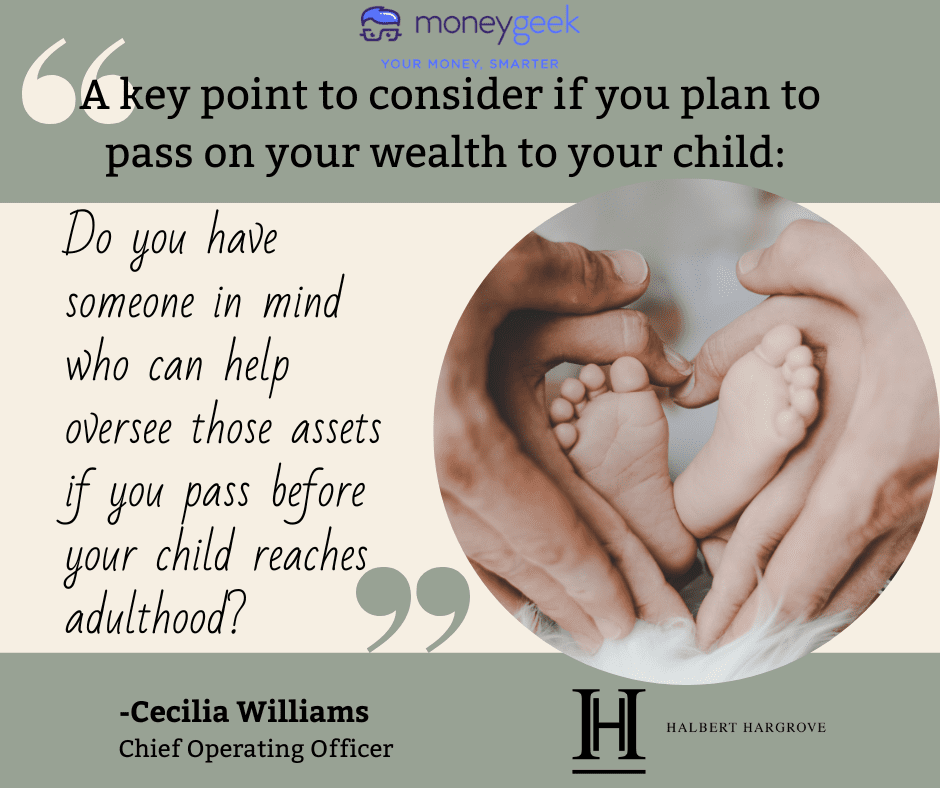By Geoff Williams, Moneygeek featuring Cecilia T. Williams, CFP®, AIF®, COO/CCO at Halbert Hargrove
When a baby arrives, visitors come through the door, and the parents’ financial planning goes out the window. Budgeting, paying bills, insurance.
Who has time to think about any of that?
That is not surprising. After all, you’ve heard the phrase, “Sleep when the baby sleeps.” But nobody says, “Do the financial planning when the baby does financial planning.
” And if you don’t do financial planning, eventually, your baby won’t be the only one crying.
Still, there’s no need to panic. You simply need a plan, all of which you can complete before or after your child is born.
Financial planning activity #1: Buy life insurance
Ideally, you’ll do this before your baby is born.
You’re bringing in this wonderful new life, and you’re being told to think about your own mortality. The irony of this situation is not lost on us.
But look, you don’t want anything bad happening to your baby, and having a life insurance policy will ensure that your child is properly cared for, emotionally and financially, if you pass away.
“Typically, a 20 or 30 term policy will do.
A financial planner or good insurance consultant will help you work through the numbers on how much benefit to purchase — thinking about covering college, paying off liabilities and/or providing a number of years of living expenses,” says Mitchell Hamer, a financial advisor at Kovitz, a wealth management firm in Chicago.
Financial planning activity #2: Establish your will and trust
Though it’s an uncomfortable topic, thinking about death will ensure that your child lives the best life possible. Again, the irony is not lost on us.
Preferably before your baby is born, you should begin estate planning, according to Cecilia Williams, chief operating officer and chief compliance officer at Halbert Hargrove, a wealth advisory investment firm based out of Long Beach, California.
“You’ll be able to document your wishes concerning who will care for your child and who should be the beneficiary of your assets,” Williams says. She goes on to advise, “A key point to consider if you plan to pass on your wealth to your child: Do you have someone in mind who can help oversee those assets if you pass before your child reaches adulthood?
”


